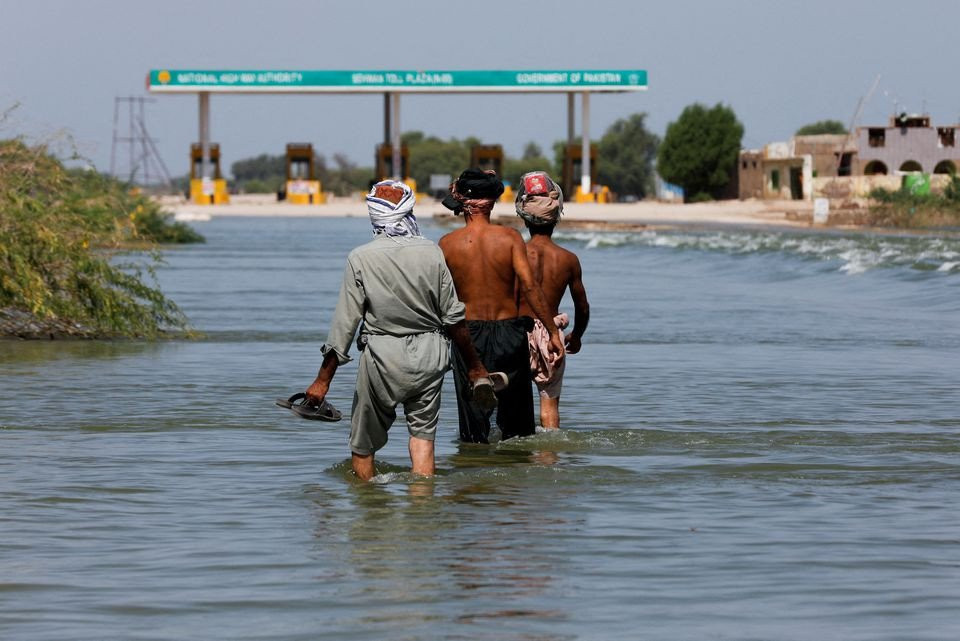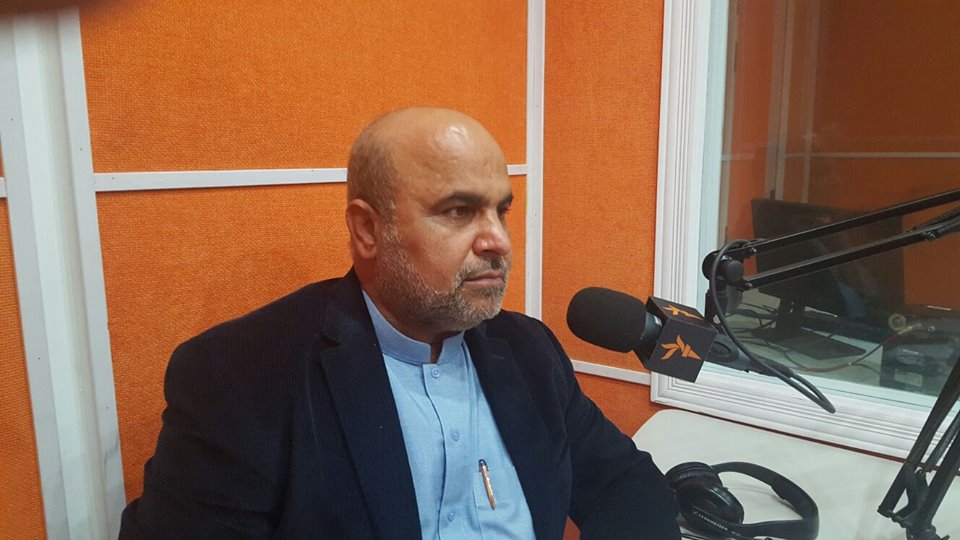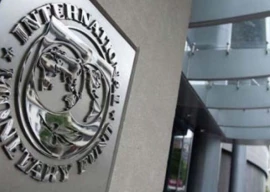
ISLAMABAD:
Pakistan is widely recognised as one of the country’s most vulnerable to the impacts of climate change. The nation is actively working to mitigate the effects of climate change on its food and water supply, healthcare system, forests, energy infrastructure, and other critical areas.
However, the security implications of climate change are largely absent from Pakistan’s policy, discourse, and action plans. While there are some general references to this issue, there is currently no policy or action plan in place to address climate change as a security threat. On the contrary, various global institutions, including think tanks, research institutes, and NGOs, have been working on the security implications of climate change for a considerable period of time.
Leading security agencies worldwide, such as the Pentagon, CIA, MI-6, and various European agencies, have identified it as a key area of focus. They are actively engaged in studying potential impacts and developing strategies to safeguard national sovereignty and protect people.
These agencies have produced a significant number of documents, and as a result of their findings, they have begun to redirect resources and train personnel to address this issue more effectively.
It is worth noting, however, that the work of military and security agencies primarily focuses on military needs, such as military infrastructure, preparedness, and operations, with limited attention given to the human and development side of security.
For example, the Pentagon has conducted a study to identify the vulnerability of its military and security infrastructure to climate change impacts.
Additionally, these agencies have assigned officers to work with academic institutions to gain a better understanding of the issue. The Pentagon also encourages its officers to pursue higher education, including PhDs, in the field of climate change and its impact on security. Despite the gravity of the issue, the security dimension of climate change remains largely absent from both policy and discourse in Pakistan.
Furthermore, there is a scarcity of literature or research studies, particularly those based on primary data, that provide a comprehensive understanding of the problem. Only a few theoretical or literature review-based papers or studies exist on this subject.
Recognising the significance of the issue, UNDP Pakistan collaborated with the National Defence University in 2015 to commission a study, which was led by the author of this article. The findings of this study are quite noteworthy, particularly with respect to the level of awareness among the general public.
We began the study by assessing the awareness of the general public regarding climate change. Astonishingly, 90% of the respondents ranked Pakistan among the most vulnerable countries to climate change, and they identified it as a significant threat to their livelihoods, food security, and water availability.
During the focus group discussions, participants explicitly stated that the scarcity of food, water, and employment opportunities would lead to conflicts, riots, and violence within the country, as well as wars between countries. They also highlighted the issue of inadequate climate-smart water governance.
Moreover, the participants had a clear understanding of the potential climate change-related disasters. They believed that Pakistan is highly susceptible to floods and droughts.
Sixty-four per cent of the respondents predicted that floods would become a regular occurrence in Pakistan due to climate change, while 23% believed that droughts would be more prevalent in the future. The participants stressed that the intensity and magnitude of these disasters would increase, which would have severe economic, social, and security implications for the country.
Respondents, particularly from Sindh and Balochistan, expressed greater concern about droughts as they had unpleasant memories of the 1999-2003 drought. They revealed that millions of people were affected, hundreds of thousands of animals died, and hundreds of thousands of people had to migrate in search of livelihoods.
Next, we inquired about the potential for conflict arising from climate change. A significant majority (79%) of the respondents believed that climate change is contributing to conflicts over natural resources. They cited the example of the 2010 floods and the subsequent migration of people due to sea intrusion in Badin. They explained that some people were forced to migrate due to the loss of their livelihoods and assets caused by the 2010 floods.
Unfortunately, they were met with resistance from the local communities and provincial governments upon arrival. The respondents believed that the local communities perceived the migrants as competitors for resources. The case of sea intrusion in Badin is another example that illustrates this issue.
We also explored the understanding of people about the relationship between climate change and national security. To our surprise, 83% of respondents clearly stated that climate change will certainly impact national security, and they were very vocal on the subject during the focus group discussions.
A majority of respondents ranked the impact on high, very high, and exceptionally high scales. Interestingly, some respondents from Balochistan highlighted a crucial point that the drought of 1999-2003 played havoc with people’s livelihoods and assets, and poverty increased manifold. Pakistan’s enemies exploited the situation and created disturbance in Balochistan. While we do not have any empirical study on this observation, it is still a significant point that Pakistan should explore in detail.
The study also proposed a list of actions, policies, and programmes to address the security implications of climate change. Firstly, Pakistan should identify security hotspots and develop policies to address the vulnerabilities in these areas. Secondly, Pakistan should map the areas that are most likely to experience climate change-induced migration. Thirdly, it is crucial for Pakistan to conduct vulnerability mapping of its military infrastructure to climate-related impacts.
Fourthly, military agencies should integrate climate-related factors into their defense-related preparations and operational planning. Fifth, Pakistan should develop a conceptual framework to identify and monitor potential conflicts related to climate change and resources, in order to take preemptive actions to prevent such conflicts from escalating into full-scale violence.
Sixth, there was a consensus among the respondents that a national steering committee on the subject should be created, comprising experts, NDU, parliamentarians, think tanks, and academia. The committee should work towards creating policies and programmes that address the security implications of climate change. Seventh, the government should re-evaluate policies related to coastal settlements, as these areas are vulnerable to floods, cyclones, sea intrusion, and sea level rise, which can jeopardize settlements and infrastructure, posing a serious threat to national security.
Eighth, the government should launch a research program dedicated to climate change and security to bridge the research gap.
The writer is a political economist and a visiting research fellow at Hebei University, China
Published in The Express Tribune, May 15th, 2023.
Like Business on Facebook, follow @TribuneBiz on Twitter to stay informed and join in the conversation.



































COMMENTS
Comments are moderated and generally will be posted if they are on-topic and not abusive.
For more information, please see our Comments FAQ